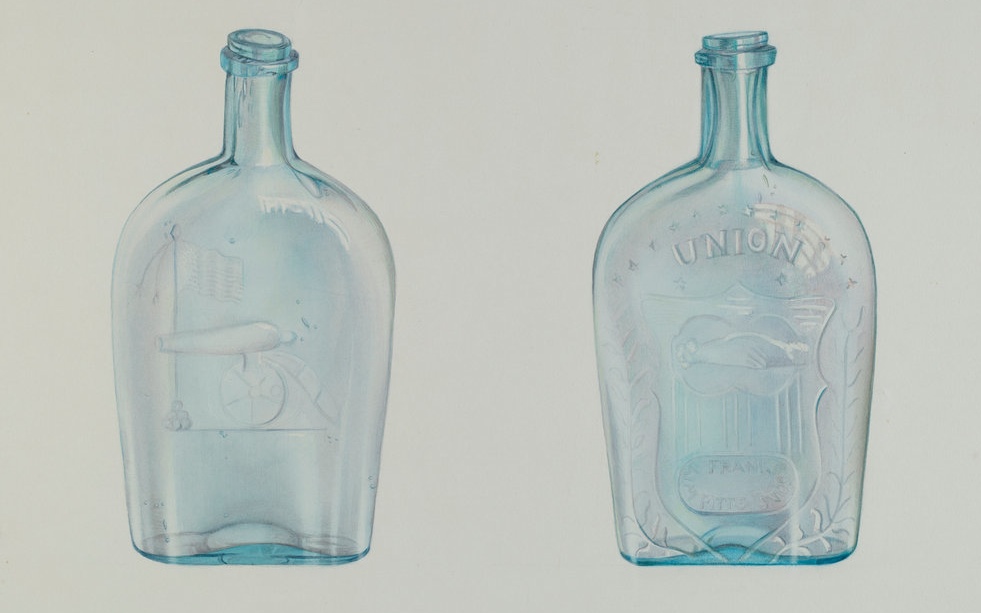 Vermin everywhere, the old man said, and so he could not eat, didn’t matter if it was bread pudding, or his MumMum’s corn meal mush, or Tastykake butterscotch krimpets. Didn’t matter how toothsome, the old man couldn’t stomach it, not with all the mice.
Vermin everywhere, the old man said, and so he could not eat, didn’t matter if it was bread pudding, or his MumMum’s corn meal mush, or Tastykake butterscotch krimpets. Didn’t matter how toothsome, the old man couldn’t stomach it, not with all the mice.
Too often he’d pick them up and toss them into the compost bin. And on top of that, the mice weren’t mice, but cat toys stitched of felt, feather, knotted yarn.
“Catch o’ the day,” he said to his daughter and the gentleman whose name he no longer remembered, her husband of some years, as he pinched a blue tail, yellow rubber glove bunched at his wrist. “Unlivable,” was the house the three lived in for months, peaceably, since his memory all but moved out. It was the same house he’d shared with his wife for too long.
His daughter and her husband adopted a cat because they’d heard cats give years back. She was a young one, full of halfwit energy, and she liked to pounce on the old man’s toes. The cat nibbled the hairs sprouting from his thick, wrinkled stubs, then vomited them up with bits of spider plant shoots and ground chicory coffee.
The three living together, it went well, because the old man could not remember to drink, or that he ever had. He could not recall the feeling, and so did not miss it, what it was to slip into that warm, untethered space.
Family visits improved. When the old man’s brother stopped by, no paperweights were thrown and, instead of slamming doors, everyone shut them so softly and without consequence that the family could almost forget, and assume the doors still remained open.
Once, the daughter and her husband fought. They hadn’t had sex since the move, and the husband blamed the old man for his ever-presence, for getting in the way of what was now, he said, their space. The old man was not responsible. They knew this. But pointing the finger did bring them a certain life.
After friction, antipathy smoothed, and they did not have sex, as one might hope, but sex also, to their great relief, no longer seemed worth the fight.
Sometimes the old man called the husband Daryl. The husband’s name was Jim. “Daryl Strawberry. Now that’s a name,” the old man said, giving the husband a shoulder pat. “Where on God’s green do you get a name like Strawberry?”
“This can’t last much longer,” the husband said.
“Daddy, don’t listen to him,” the daughter said. She called him Daddy now, though never before. “Now you keep on kicking, Daddy.”
“Aim for the bucket,” the husband said.
In all the years, no one said alcoholic. Except once, the divorce lawyer, and even then, the old man’s wife stepped in. “His problem,” she explained to the judge.
And after the old man no longer drank, no one said problem either. It was as if the issue had never been. It was as if life were always so light.
“At least he can still wipe his own,” the daughter said one evening, while re-rolling yard after yard of toilet paper the old man had pulled onto the floor.
Nothing got too out of hand, not for a while, but the day before the old man died, he started to remember. When the cat went for his toes, he threw it a mouse with a feather tail. When the daughter’s husband came home from work, he asked if he, Jim, would uncork the next round. The old man drank eleven glasses that afternoon. And nobody stopped him. Instead, they poured.
The daughter made a toast, to family, to blushing chemical sunsets, to a Marsalis on the radio.
Then, in the papers: beloved brother, husband, father. And at the funeral, a trumpet wept on cue.
This became the end. Except, in time, the old man did return, or he never left.
“Now the front burner won’t catch either,” the husband said to his wife, the daughter, years later, having grown gray together. Morning begun, breakfast, and he’d already cracked an egg into its pan.
The old man was the burner, even the egg.
He was the houseplant that lost its leaves, the overstuffed file drawer that, when opened, left the daughter overwhelmed, in an instant, and tired. He was the pillow grown warm, the radiator’s click. He was electric bills, underpaid overtime, tube bulbs deepset into ceilings. He was the power outage in a winter storm. The miniature porcelain Christmas village that, one holiday season, the husband dropped. He was the chapel, the snow-covered schoolhouse, in glazed, delicate shards. He was their children, no longer children. He was their children who no longer called. He was joint custody. The words that replaced other words, when talk of love felt too watered down. The words not tried, that might have fixed everything. Actions, too, undone. Sleeping pills. Achy knees. Empty calories. Round after round, uncorked, and he was the nobody to stop their pours.
Alison McCabe was born and raised in the Garden State, and now lives in the Sonoran Desert. She teaches English at the University of Arizona where, in 2010, she received her MFA. Alison’s fiction is forthcoming in Third Coast, and other writing has appeared in DIAGRAM and Cutthroat Magazine. She’s currently at work on a novel.